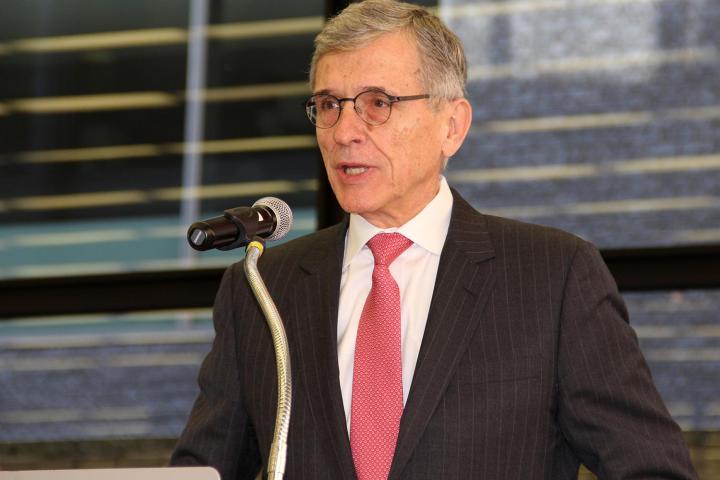
Comparing his proposed rule changes to the 1992 Congressional mandate that gave satellite companies like DirecTV and Dish Network access to cable channels, Wheeler laid out a new path in a blog post Tuesday that would do much the same thing for companies looking to offer live TV on the Internet. The post is a consumer-friendly call to arms, and it challenges the current system in an effort to spur competition and open the gateway to cable and local programming for online TV services.
“Consumers have long complained about how their cable service forces them to buy channels they never watch,” Wheeler writes. “The move of video onto the Internet can do something about that frustration – but first Internet video services need access to the programs.”
Wheeler’s new stance comes at a watershed moment for online video, and TV programming as a whole. For years, services have been trying to make a move online to compete with big cable and satellite providers, with little success. The rise of online services like Netflix, Hulu, Amazon Instant, and HBO’s forthcoming stand alone service, have only deepened the thirst for online TV services that might challenge the stranglehold big cable and satellite companies have on content right now.
Today’s proposal won’t affect services like Netflix as they currently stand. Instead, the changes are designed to open the gates for linear or live online TV services that offer the kind of leaner programming packages desired by cord-cutters — those who have ditched traditional cable and satellite services. Several such Internet-delivered TV services are already in the works, including proposed online packages from Sony and Dish Network, stand alone offerings from ESPN, and even live and on-demand programming from one of the big four networks, CBS.
However, Internet TV services that conform to cord-cutters’ dreams have been extremely difficult to forge under the current programming paradigm. Just ask Aereo CEO Chet Kanojia, whose online broadcasting service has been under constant litigation since its inception, and was recently shuttered by the Supreme Court. A similar crash and burn effort was witnessed in the failed OnCue system from Intel, and even Sony and Dish’s anticipated services have seemed to stall out, reportedly unable to acquire the kind of content that would appeal to those who have ditched traditional TV.
Of course there are already plenty of ways to get live TV over the Web. But, while certain apps will let you watch many stations online, most live TV is still exclusively the right of cable and satellite providers, so that means users have to prove they have a cable or satellite subscription before they can watch — the way HBO Go currently works is a good example. Wheeler explains in his post that a rule change is necessary to make live content more accessible online in order to give consumers what they want, and drive the technology forward into the next era.
“The mantra ‘Competition, Competition, Competition’ fits perfectly with consumers’ desires for video choices,” Wheeler writes. “That’s why I’m asking my fellow Commissioners to update video competition rules so our rules won’t act as a barrier to this kind of innovation. The result of this technical adjustment will be to give MVPDs that use the Internet (or any other method of transmission) the same access to programming owned by cable operators..”
Wheeler’s call to alter the definition of multichannel video programming distributers (MVPDs), is music to the ears of services like Aereo, which has been asking appellate courts for the very same reclassification, to no avail. Should the proposed rule change go through, it might very well open the door for Aereo, and similar services to set-up shop again. And that’s just the start.
As technology has outpaced legislation, innovative new services that threaten an all out revolution when it comes to not only how we get our entertainment, but the number of choices available, have so far been shackled to an antiquated system. Unleashing these new services could create a host of new ways for consumers to access live TV and other video programming, and force content providers to free live programming from its chains.
Wheeler’s surprising transition towards updating the current status quo is a refreshing new turn that should give hope to all those fed up with the mighty grasp over content by cable and satellite providers. As we move deeper into the new era, Wheeler seems ready to prod the FCC and others to turn over a new leaf. His statement below perhaps most accurately sums up the situation as it stands.
“Twenty-first century consumers shouldn’t be shackled to rules that only recognize 20th century technology.”
Given Wheeler’s opaque stance on Internet issues thus far, especially regarding Net neutrality, it’s difficult to know whether or not his new proposal is anything more than a duplicitous attempt to placate the viewing public. But if he follows through on his proposal, it could mean big changes are at hand. Here’s hoping that, when it comes to online entertainment, the 21st century has finally arrived.


